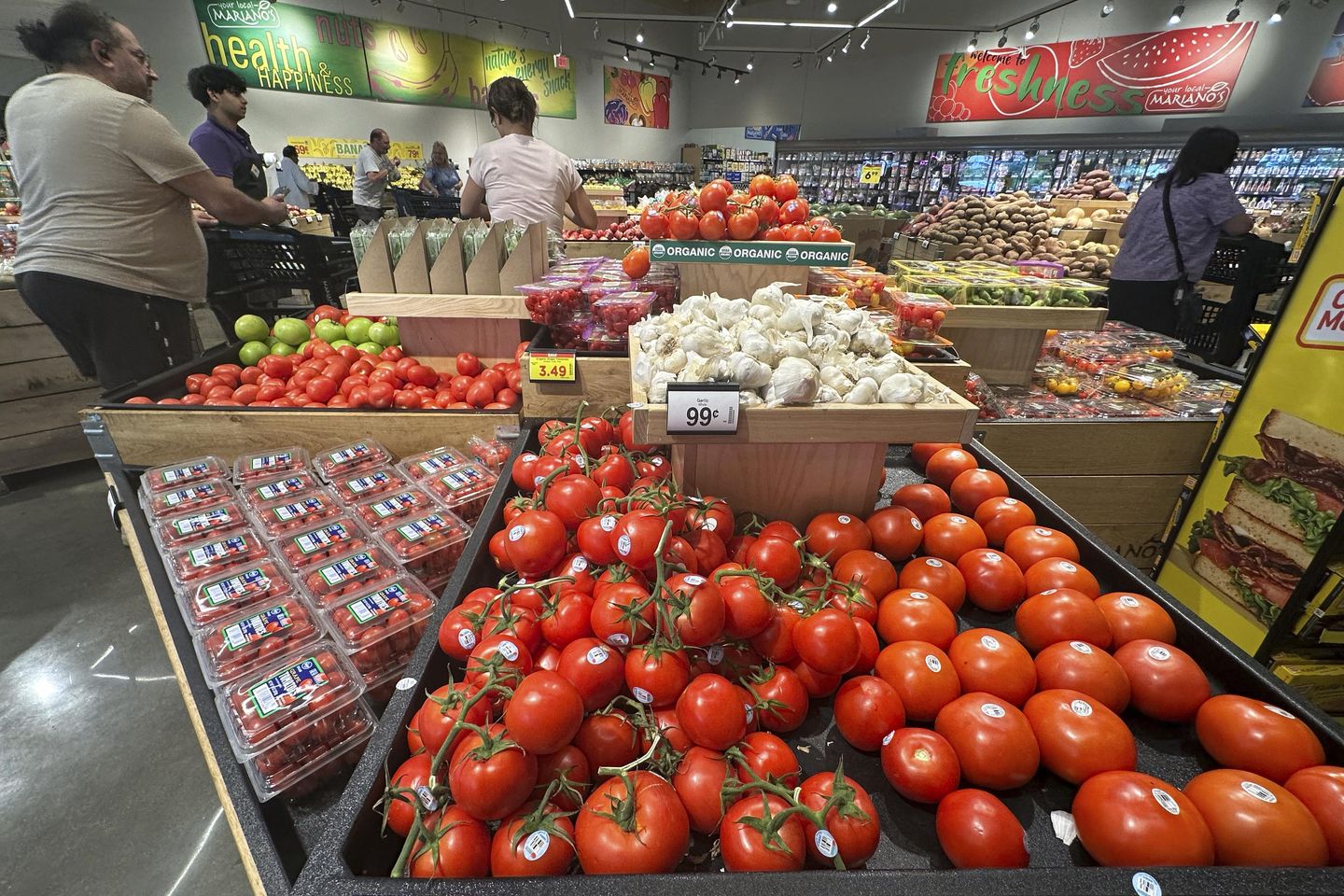
A majority of Americans blame corporate greed rather than President Trump’s tariffs for rising consumer prices, recent polls reveal.
A new consumer sentiment report from a Bloomberg-Harris poll finds that 72% of adults surveyed in March expressed concerns about tariffs. And yet, another Harris Poll survey in April showed 63% of consumers believed businesses were “using the economy as an excuse to raise prices,” and 62% said product quality was declining as goods and services became more expensive.
“Three-quarters of Americans are concerned about tariffs, and most are blaming businesses for price hikes over policymakers,” said Harris Poll CEO John Gerzema.
The Harris Poll shared an advance copy of the report, which will be released Monday, with The Washington Times.
Whether jittery about tariffs or distrustful of corporations, Americans are seeing climbing prices.
The Bureau of Labor Statistics’ consumer price report for June showed higher-than-expected inflation. The report, which was released Tuesday, showed consumer prices rose 2.7% year-over-year, higher than the Fed’s inflation target rate of 2% and slightly accelerated from May’s annualized inflation rate.
Mr. Trump pulled back on high tariffs earlier this year. But he has pledged to impose new tariffs ranging from 25% to 50% on Aug. 1, unless trading partners offer better terms to the U.S.
Some corporations and market analysts have blamed price increases on Mr. Trump’s use of tariffs as leverage to incentivize domestic production and negotiate more favorable trade deals abroad.
In a business sentiment report published Thursday, the Northern Virginia Chamber of Commerce found that 40% of business leaders responding to a third-quarter survey believed the president’s tariff and negotiation process “will cause their company to decline,” 48% foresee “no impact,” and 11% expect their company will grow.
“The federal government’s impact on our regional economy is real and significant,” said Julie Coons, the Northern Virginia Chamber’s president and CEO.
Still, a large share of consumers believe businesses are using uncertainty about tariffs as an excuse to raise prices on imported food and clothing.
They point out that other countries don’t pay the tariffs directly to the U.S. Treasury, despite Mr. Trump sometimes characterizing them as payments from foreign governments.
In many cases, U.S. companies will pay the levies and can choose whether to pass on at least some of the cost to consumers through higher prices.
Mark Bucher, a co-owner of Medium Rare steakhouse and food insecurity instructor at American University in Washington, said the narrative that tariffs have raised prices for farmers and restaurants is “largely false.”
“There are some increases in the cost of imported produce that can’t be grown domestically, but we’re talking about minor increases — pennies, really — and most restaurants have adjusted by raising menu prices slightly,” said Mr. Bucher, a longtime board member of the National Restaurant Association.
According to the Harris Poll’s analysis, most adults agree that businesses raise prices, not the White House.
The Bloomberg-Harris survey from March found that 66% of consumers said the economy was worsening, 60% expected tariffs to raise prices and 66% agreed with the sentiment that “the U.S. economy will take years to recover from Trump’s tariffs.”
Nevertheless, the Harvard/CAPS/Harris survey published in April found that only 30% of consumers blamed the government for related financial stress, compared with 39% who blamed companies.
Mr. Gerzema said this is a time when businesses have an opportunity to build trust and grow brand loyalty.
“Consumers must be able to trust that businesses are not taking advantage of them during this period of high economic anxiety,” he said. “Those who demonstrate themselves as allies right now will build future differentiation and goodwill.”










